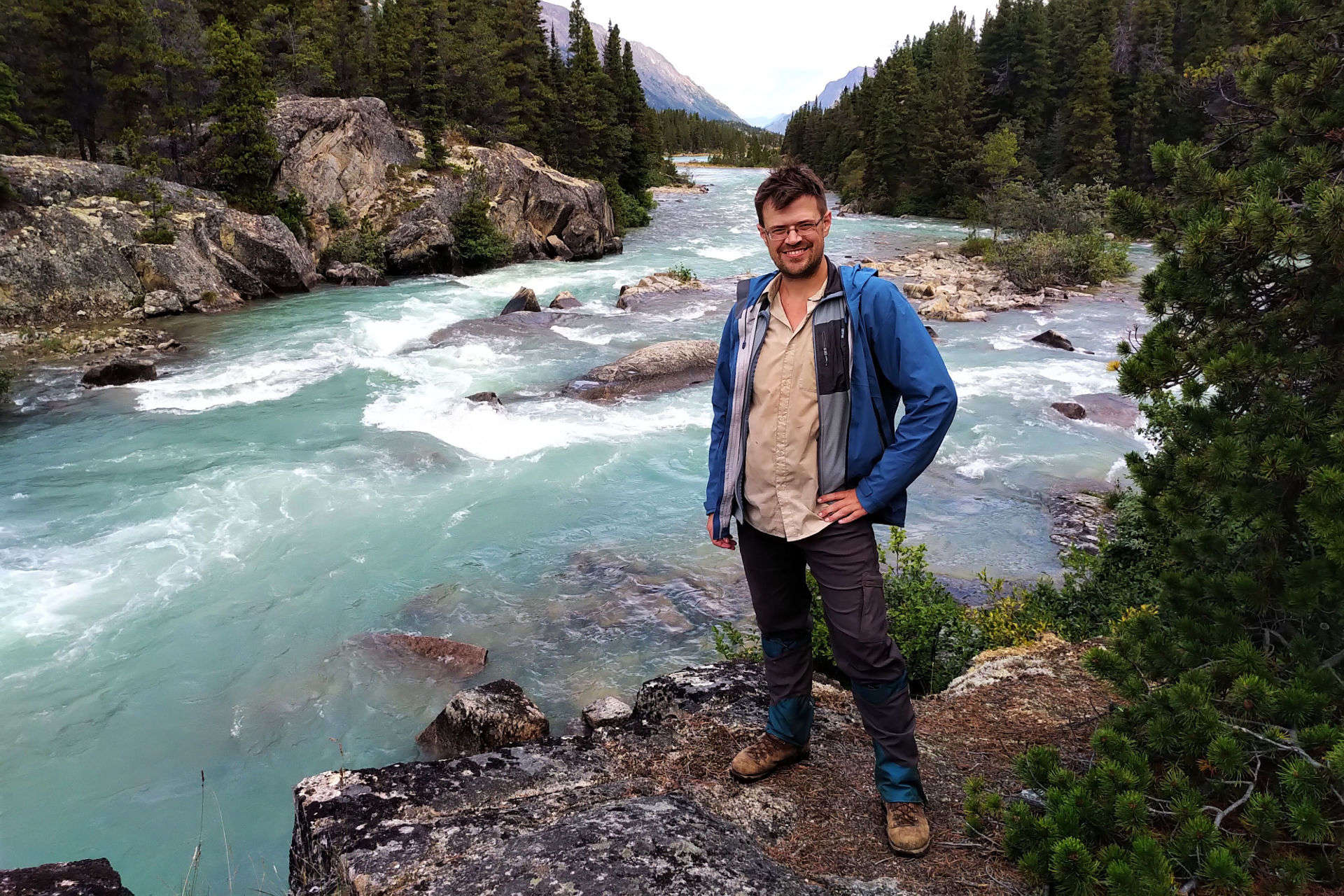
Ben Massey. Backpacking enthusiast, creator of this site, former writer of sports articles for several websites and one magazine, all-round handsome guy, and writer of his own blurbs.
Between Vancouver Island and the British Columbia mainland. Gorgeous places, every one.

Ben Massey. Backpacking enthusiast, creator of this site, former writer of sports articles for several websites and one magazine, all-round handsome guy, and writer of his own blurbs.
1,575 words · Gulf Islands, Southwestern British Columbia

We all go to nature for different things. Some enjoy the challenge and solitude of attacking difficult places, spending days or weeks reliant on our guts, our abilities, and a few thousand dollars’ worth of ultra-modern, lightweight gear. Most think of a well-groomed drive-up site, maybe in an RV, with water and fuel close-to-hand, and rusticity without labour more intense than driving for a few hours down the backroads and a fight with tent poles.
This is great! Perfect for young children and the infirm, of course, but these places offer scenery, fun, and lifelong memories to anyone with a minimum of trouble (if not expense). You won’t see me defend soulless RV parks with concrete pads, gravel for your incontinent dog, and nary a plant that hasn’t been mowed, but even in those places many patrons are there for a base camp to explore more interesting sites and it’s hardly fair to consider the rest as typical. Most people seek pleasant climes that fits the amount of effort they’re willing to expend, and exposure to nature is an inherent good. Front country has a lot to be said for it.
But not a lot said about it. You ever notice that? If, God forbid, you do want that lousy time sitting in a trailer park you will find a surfeit of guidance, because RVers have disposable income and even those who just park their trailers at a site and wander around need to know where to park. The backcountry side of camping writing is even more massively oversubscribed, including by this very website; thousands of people thinking “if I work this hard enough I’ll get the marks to pay for my four months on the Pacific Crest Trail1.”
We’re left with people who want to experience natural wonder but not a Life-Changing Experience on the West Coast Trail for a week. Many such people are in southwestern British Columbia, Vancouver and Victoria and so forth, and the trails resound with their steps. But your best source for good, vehicle-accessible, but naturally-situated camping in this area is always a governmental website. Being bureaucrats, and therefore category-oriented, they shove everything into two bins. “Front country” and “back country,” and what does that even mean?
Never miss a ramble
Ben will hike to your inbox! New posts and nothing else.
1,787 words · Gulf Islands, Southwestern British Columbia
I don’t mean to be controversial, to sound melodramatic, to appear unhinged. But it is time to commit genocide against raccoons. Sure, the clean ones you see cute pictures of in children’s books look adorable enough, but that is media propaganda. Real raccoons spread filth and disease as they zip about noisily at all hours of the night. They inconvenience passers-by and damage property. They scatter trash all over Hell’s half-acre and make a mockery of man’s pathetic efforts to keep order in the universe.
But, most of all, they eat my pepperonis.
Dionisio Point Provincial Park is a patch of marine solitude on the northeast tip of Galiano Island, the second-largest of British Columbia’s Southern Gulf Islands. If you live in the Pacific Northwest and aren’t familiar with the Southern Gulf Islands, take the time. Crowded with tourists in the summer, unbearable on pleasant long weekends, but in shoulder season they are quiet, accessible, (broadly) inhabitable, and picturesque in a fine understated marine way. Rather than the grand fjords, chasms and mountains of the mainland, or the storm-swept savagery of the Pacific coast of Vancouver Island, the Southern Gulf Islands give you all the charm of horizontal lines, great heights at a discrete distance, pretty beaches, and enough on the horizon for your eye to always alight upon something. The weather’s pretty fair too.
Several BC provincial parks and the federal Gulf Islands National Park Reserve offer year-round walk-in camping; no services but clean sites, gorgeous ocean views, and some five-star day hiking that holds up from early spring to late fall2. It’s not a cheap trip, BC Ferries fares being what they are, but it’s convenient, pretty weekend stuff that lets you taste fresh air when the mountains are snowbound.
About the Author

Ben Massey. Backpacking enthusiast, creator of this site, former writer of sports articles for several websites and one magazine, all-round handsome guy, and writer of his own blurbs.
Unless otherwise noted, all content copyright 2016—2025 Benjamin Massey. All rights reserved. Any icons or trademarks used are the sole property of their respective companies. Powered by Wordpress.